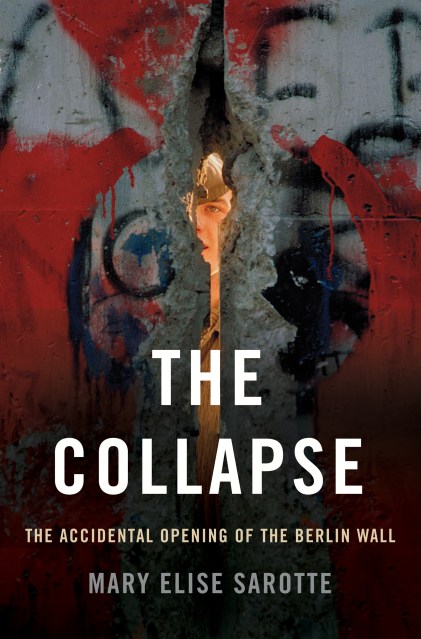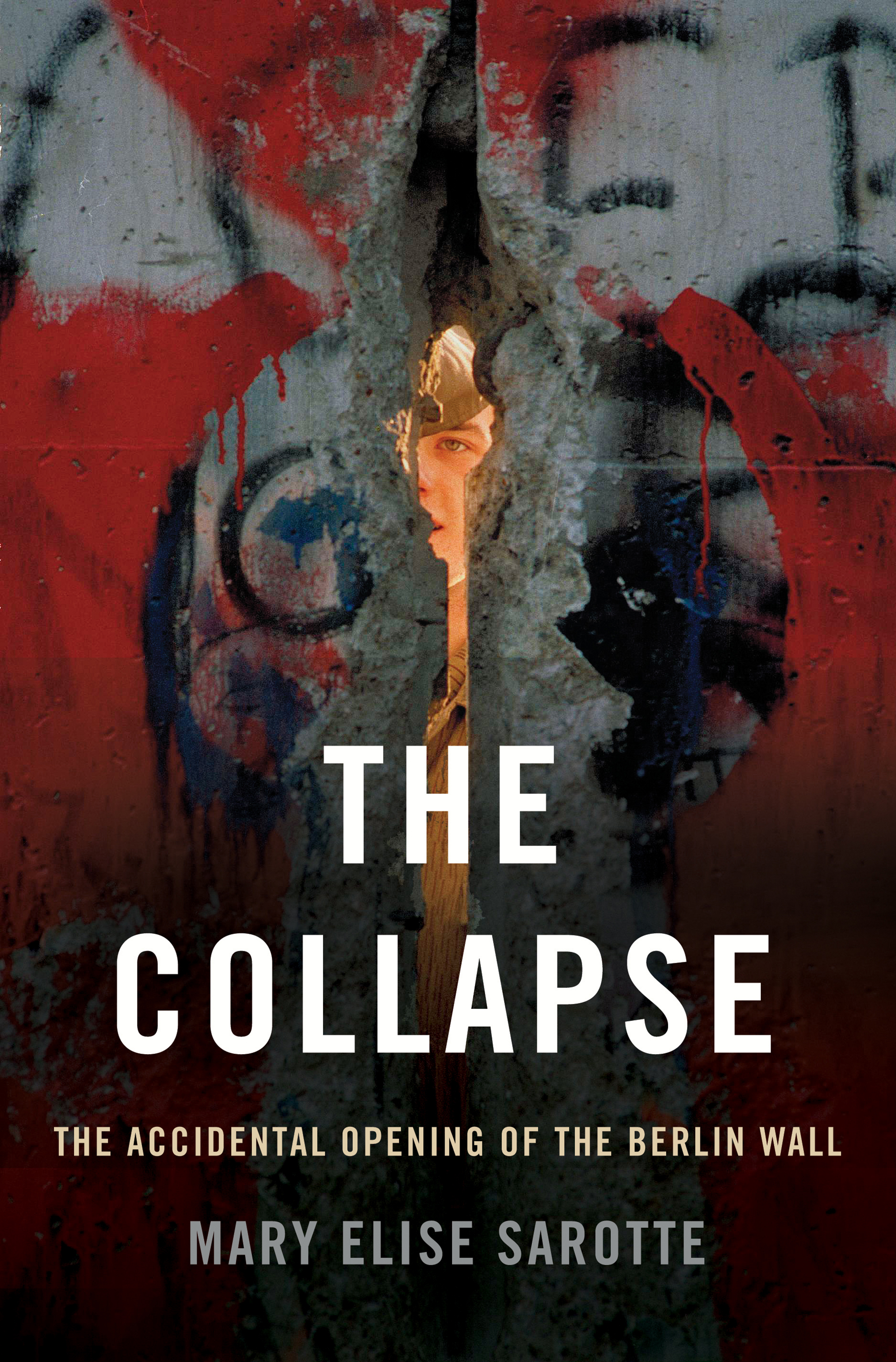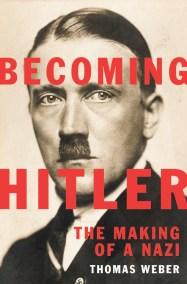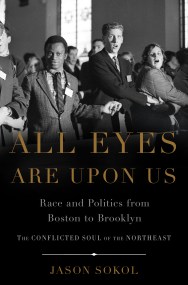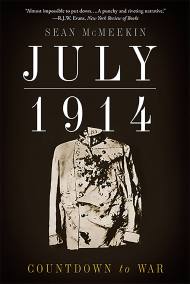By clicking “Accept,” you agree to the use of cookies and similar technologies on your device as set forth in our Cookie Policy and our Privacy Policy. Please note that certain cookies are essential for this website to function properly and do not require user consent to be deployed.
The Collapse
The Accidental Opening of the Berlin Wall
Contributors
Formats and Prices
- On Sale
- Oct 7, 2014
- Page Count
- 320 pages
- Publisher
- Basic Books
- ISBN-13
- 9780465056903
Price
$11.99Price
$15.99 CADFormat
Format:
- ebook $11.99 $15.99 CAD
- Trade Paperback $19.99 $25.99 CAD
This item is a preorder. Your payment method will be charged immediately, and the product is expected to ship on or around October 7, 2014. This date is subject to change due to shipping delays beyond our control.
Buy from Other Retailers:
It was an accident.
In The Collapse, prize-winning historian Mary Elise Sarotte reveals how a perfect storm of decisions made by daring underground revolutionaries, disgruntled Stasi officers, and dictatorial party bosses sparked an unexpected series of events culminating in the chaotic fall of the Wall. With a novelist’s eye for character and detail, she brings to vivid life a story that sweeps across Budapest, Prague, Dresden, and Leipzig and up to the armed checkpoints in Berlin.
We meet the revolutionaries Roland Jahn, Aram Radomski, and Siggi Schefke, risking it all to smuggle the truth across the Iron Curtain; the hapless Politburo member GüSchabowski, mistakenly suggesting that the Wall is open to a press conference full of foreign journalists, including NBC’s Tom Brokaw; and Stasi officer Harald Jär, holding the fort at the crucial border crossing that night. Soon, Brokaw starts broadcasting live from Berlin’s Brandenburg Gate, where the crowds are exulting in the euphoria of newfound freedom — and the dictators are plotting to restore control.
Drawing on new archival sources and dozens of interviews, The Collapse offers the definitive account of the night that brought down the Berlin Wall.
Genre:
-
"This is easily the best book on the fall of the Berlin Wall."Fareed Zakaria, CNN GPS Book of the Week
-
"Sarotte is a superb historian. She's ferociously intelligent, but what really separates her from her colleagues is her acute sensitivity to human drama."Washington Post
-
"A blow-by-blow account of the birth of modern Germany on November 9th 1989, when, at an otherwise dull press conference in East Berlin, a government spokesman said that a new law permitting East Germans more freedom to travel would go into effect immediately. It changed Europe forever."Economist Best Books of2014
-
"This is history writing at its very best, full of drama and pathos, yet immaculately researched and elegantly written."BBC History Magazine 2014 Books of the Year
-
"The Collapse challenges our narrative of the Soviet Union's collapse, 25 years after the Wall's fall. Sarotte deftly balances individual human agency and contingency with larger political forces to show that the Berlin Wall coming down was neither inevitable nor the result of global power shifts alone."Zócalo Public Square 10 Best Books of 2014
-
"Sarotte has produced a skillful, scrupulously documented, nuanced reconstruction of how a series of mistakes by East German leaders and officials...turned what was meant to be a carefully managed process of controlled opening...into the world's most celebrated festival of popular liberation."Guardian (UK)
-
"A fast-paced, fascinating account of the final weeks, days and hours of the wall."Telegraph (UK)
-
"Sarotte's lively and engaging book scrupulously details the events of November 9, 1989, when the world watched in shock as the Berlin Wall came down."Foreign Affairs
-
"[A]n authoritative and fast-moving account of the events that led up to the collapse of East Germany."FinancialTimes, Best Books of2014: History
-
"Brief, intense, and gripping.... Sarotte's effort is magnificent.... This is history at its best."Winnipeg Free Press
-
"The book that will haunt Vladimir Putin as long as he's in power."Washington Post's Post Everything Blog
-
"Sarotte's wonderfully written book--backed up with reams of research and interviews--explains the factors that led to one of the most important moments in the twentieth century."H-Diplo
-
"An inspiring and often thrilling account."Booklist, starred review
-
"This gripping, important account of a long-misinterpreted event is one of the most surprising books about the Cold War."Publishers Weekly
-
"A rigorous sifting of evidence surrounding the final toppling of the sclerotic East German state. With extensive use of Stasi files, Sarotte finds that accident, rather than planning, caused the collapse of the Berlin Wall.... [T]his account amply conveys the universal amazement and excitement of the time."Kirkus
-
"The Collapse is a riveting and important account of the political chaos in East Germany that led to the fall of the Berlin Wall. Mary Elise Sarotte is a distinguished historian with a playwright's eye who gives us fresh insights and telling anecdotes about one of the most important nights of the late twentieth century."Tom Brokaw
-
"Sarotte runs a fine-tooth comb through the archives and gathers an impressive range of stories from the ordinary people at the heart of these extraordinary events. She is keen to dispel the kind of convenient 'hindsight bias' which claims that the peaceful fall of the Wall was inevitable or engineered by bigger forces than human beings who wanted a different life."Wall Street Journal
-
"The most definitive account to date of the events that led to the demise of the German Democratic Republic, the reunification of Germany, and the end of the Cold War."Pittsburgh Post-Gazette
Newsletter Signup
By clicking ‘Sign Up,’ I acknowledge that I have read and agree to Hachette Book Group’s Privacy Policy and Terms of Use
